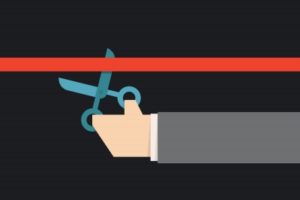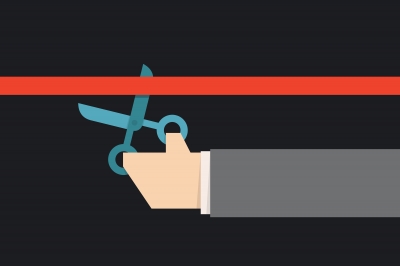 The National Competitiveness Council (NCC) introduced on June 13 Project Repeal, a program designed to scrap outdated laws and regulations and rationalize existing ones in a bid to cut red tape and improve the ease of doing business in the country.
The National Competitiveness Council (NCC) introduced on June 13 Project Repeal, a program designed to scrap outdated laws and regulations and rationalize existing ones in a bid to cut red tape and improve the ease of doing business in the country.
During the event which also marked First Repeal Day, NCC private sector co-chairman Guillermo Luz said many of the country’s laws and regulations need weeding out, as they are no longer relevant or necessary, dating back as they are from the Commonwealth and Martial Law eras.
Project Repeal’s target, he said, is “reduced compliance for people in businesses and savings for the economy.”
The idea for the project was taken from similar ones carried out in Australia, the United Kingdom, South Korea and Vietnam, Luz said.
Four kinds of repeal are envisioned, Luz said: Amendment (the addition, deletion, or change of certain provisions of a rule or regulation); consolidation (combining several similar or related circulars into a single order); de-listing (removal of rules that have been repealed but remain listed in government websites or rosters, misleading people into thinking these rules are still in force; and repeal (full elimination of a rule or issuance because it has become unnecessary).
The repeal process will go through a number of steps involving a series of workshops and assessments and reviews by technical working groups (TWGs) for each agency that will finalize the process.
NCC’s TWGs have identified for review or action 17,388 department orders and issuances from the initial eight government agencies that participated in the project. These are the Department of Finance (DOF), the Senate, Department of Trade and Industry (DTI), Department of Tourism (DOT), Department of Budget and Management (DBM), Department of Energy, Land Transportation Franchising and Regulatory Board, and Securities and Exchange Commission.
Of the total issuances, 3,959 have been reviewed while the remainder are still under review, Luz said.
Of those reviewed, 2,032 are to be delisted, 1,900 to be repealed, five amended, and 22 consolidated into single circulars or issuances.
He acknowledged government agencies such as DTI, DBM, DOF, Department of Public Works and Highways, and Department of Labor and Employment for taking the initiative to rationalize orders and circulars even before Project Repeal’s launch. Luz welcomed the cooperation of government agencies with Project Repeal, remarking how they themselves saw how antiquated issuances were a source of inefficiencies. Other agencies, like the Bureau of Customs and Bureau of Internal Revenue, will be joining Project Repeal soon, he noted.
Asked if the new administration might question the project, Luz said he doesn’t think so, and noted that the incoming leadership is aggressive about simplifying and streamlining procedures. In Davao, where President-elect Rodrigo Duterte was the mayor for years, offices are required to act on a request within 72 hours, which Luz said is fast compared with other government agencies.
In a speech during the event, Finance Secretary Cesar Purisima said other countries that undertake this practice have reported savings. In Australia, a total of AUD4.6 billion were saved as of December 2015 with the reduction in red tape. The United Kingdom has scrapped about 2,400 regulations, allowing homebuilders to save GBP1 million a year and businesses to save another GBP90 million in compliance with environmental guidelines. South Korea eliminated 48.8% of its regulations and saved an equivalent of 4.4% of GDP, while Vietnam saved $50 million a year following red tape reduction.
Purisima said DOF alone has 552 department orders for trimming down to around 200, and 273 outdated committees that have been formed since 1958 that are targeted for abolition.
He noted Project Repeal must be tied in with Project Digitalization, insisting the country must embark on digitalization and use of information technology to further improve competitiveness.
Senator Paolo Benigno Aquino IV during the same event agreed with Purisima’s suggestion, saying digitizing records and submissions to the government is crucial in pushing for efficiency. He said there are laws mandating government agencies to automate but these lack implementation.
Aquino said that outdated and redundant laws create confusion that lead to inefficiency and corruption, and that it is time to “chart a course for our agencies that are not only beneficial to the people but are also efficient.”
“Lack of efficiency is the one that stops our people from getting the service that they need. It stops businesses from growing to the level that they grow. It stops our country from entering that stage which I think all of us feel we already deserve, which is to be middle-income country,” Aquino pointed out.
Creating an Efficiency Office
The lawmaker will be filing a bill in the incoming 17th Congress on the creation of a Philippine Efficiency Office that will be tasked to constantly check and double-check on both old and new laws that hamper efficiency.
The Efficiency Office will also guide legislators and stop them from overregulating, Aquino added. The proposed office will likewise check policies of government agencies and prevent redundant or conflicting rules.
“Because if government continues on the silo level where you look at things based on just sectoral and not across sectors, you can come up with regulations which are okay for one sector but actually create more problems for others sectors around it,” Aquino explained.
He added that he hopes the Efficiency Office will act as the referee of agencies that want to implement contradicting orders.– Roumina Pablo
Image courtesy of bplanet at FreeDigitalPhotos.net





